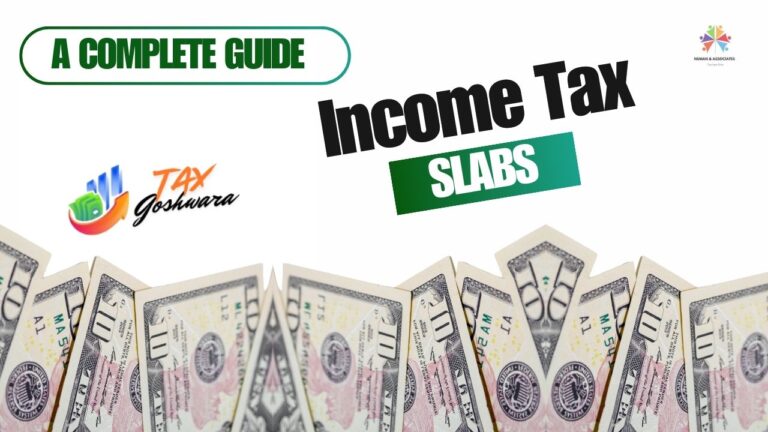Who Is Required to File a Tax Return in Pakistan?
If you’ve ever wondered “Am I required to file?”, this guide breaks down everything you need to know.
Filing an income tax return in Pakistan is not just a legal formality—it’s a responsibility that ensures financial transparency and compliance with national tax laws. The Income Tax Ordinance, 2001 sets out clear criteria for individuals, businesses, and organizations that must file their returns each year.

Understanding the Legal Framework
As per Section 114(1) of the Income Tax Ordinance, 2001, the following categories of persons are required to file a return of income, whether or not they have taxable income. This law applies across Pakistan and is enforced by the Federal Board of Revenue (FBR).
1. Companies and Firms
All Companies – Public and Private
- Every registered company must file a return annually, regardless of profit, loss, or exemption status.
- This includes startups, dormant companies, and entities with no active operations.
Association of Persons (AOPs)
- AOPs and partnerships are also bound to file returns if they generate income or fall under FBR’s specified thresholds.
Note: Filing allows companies and AOPs to claim refunds, adjust tax credits, and carry forward losses.
2. Individual Taxpayers
Salaried Individuals
- If your annual salary income exceeds Rs. 600,000, filing is mandatory.
- Even if tax is already deducted at source by your employer, you must still file to be included in the Active Taxpayer List (ATL).
Business Income
- Any individual earning more than Rs. 300,000 to Rs. 400,000 annually from business activities must file a return.
Other Situations for Individuals
You are required to file if you:
- Have been taxed in any of the last two preceding years.
- Claim a loss to be carried forward to future years.
- Own agricultural income exceeding Rs. 80,000 along with any other source of taxable income.
3. Property Owners
According to section 114, individuals must file if they own:
- Residential property measuring 500 square yards or more in municipal, cantonment, or Islamabad Capital Territory areas.
- Flats/apartments with a covered area of 2,000 square feet or more in notified rating areas.
Property registries, utility data, and land records are routinely used by FBR to track compliance.
4. Vehicle Owners
If you own a motor vehicle with an engine capacity above 1000cc, you are legally required to file your return—even if your income is below the taxable threshold.
5. National Tax Number (NTN) Holders
Once you have obtained an NTN, you are automatically bound to file a return every year. Having an NTN creates a formal record with the FBR, and skipping filing can result in notices and penalties.
6. High Electricity Consumers
If your annual commercial or industrial electricity bill exceeds Rs. 500,000, you are required to file a tax return.
Example: A small shop or factory with heavy electricity consumption will fall under this rule even if overall income is low.
7. Registered Professionals
All individuals registered with professional councils must file annually, including:
- Doctors (PMDC/PMC)
- Engineers (PEC)
- Lawyers (Bar Councils)
- Chartered Accountants (ICAP)
- Cost & Management Accountants (ICMAP)
8. Residents with Foreign Income or Assets
- Every resident individual with foreign income above USD 10,000, or foreign assets worth USD 100,000 or more, must file both:
- A domestic income tax return; and
- A Foreign Income & Assets Statement (Section 116A).
This ensures overseas income is properly documented and declared.
9. Non-Profit Organizations
All non-profit organizations, welfare trusts, and NGOs are required to file returns annually, irrespective of income or exemptions.
10. Final Taxation Cases
If your income is subject to Final Tax Regime (FTR)—such as importers, exporters, or contractors—you are still required to file a return, even though tax has already been deducted at source.
Exceptions – Who May Not Need to File?
The law also provides a few exceptions:
- Individuals whose income consists solely of salary and their employer has already submitted a withholding statement to FBR.
- Persons whose entire income is subject to final taxation (though filing is still encouraged for ATL benefits).
- A widow, orphan under 25 years, disabled person, or non-resident who owns immovable property but has no taxable income.
Wealth Statement Requirement
Every resident individual filing a return must also file a Wealth Statement disclosing assets, liabilities, expenses, and lifestyle.
- Revision of wealth statements is allowed within five years, subject to approval by the Commissioner.
- This tool helps FBR assess whether declared income aligns with lifestyle and asset accumulation.
Penalties for Non-Filing
Failing to file a return can result in serious consequences:
- Penalty: Rs. 10,000 minimum (Rs. 1,000 per day of delay for salaried persons).
- Higher Withholding Taxes: Non-filers pay double or higher taxes on property transfers, bank transactions, and vehicle registration.
- Legal Action: FBR can block mobile SIMs, disconnect utilities, and restrict travel.
- Refund Loss: You lose the right to claim any tax refunds or adjustments.
Why Filing Matters
By filing your tax return, you:
- Join the Active Taxpayers List (ATL), unlocking lower tax rates.
- Maintain legal compliance, avoiding penalties.
- Document your income for purposes like loans, visas, and investments.
- Contribute to national development through transparent tax collection.
Conclusion
The question “Who is required to file a tax return in Pakistan?” is answered clearly in law: a wide range of individuals, businesses, professionals, and organizations must file annually. Don’t wait until the last minute. Prepare your documents early and use the FBR IRIS Portal or a professional tax consultant to file correctly. Filing on time keeps you compliant, reduces tax burdens, and secures financial credibility in Pakistan and abroad.





